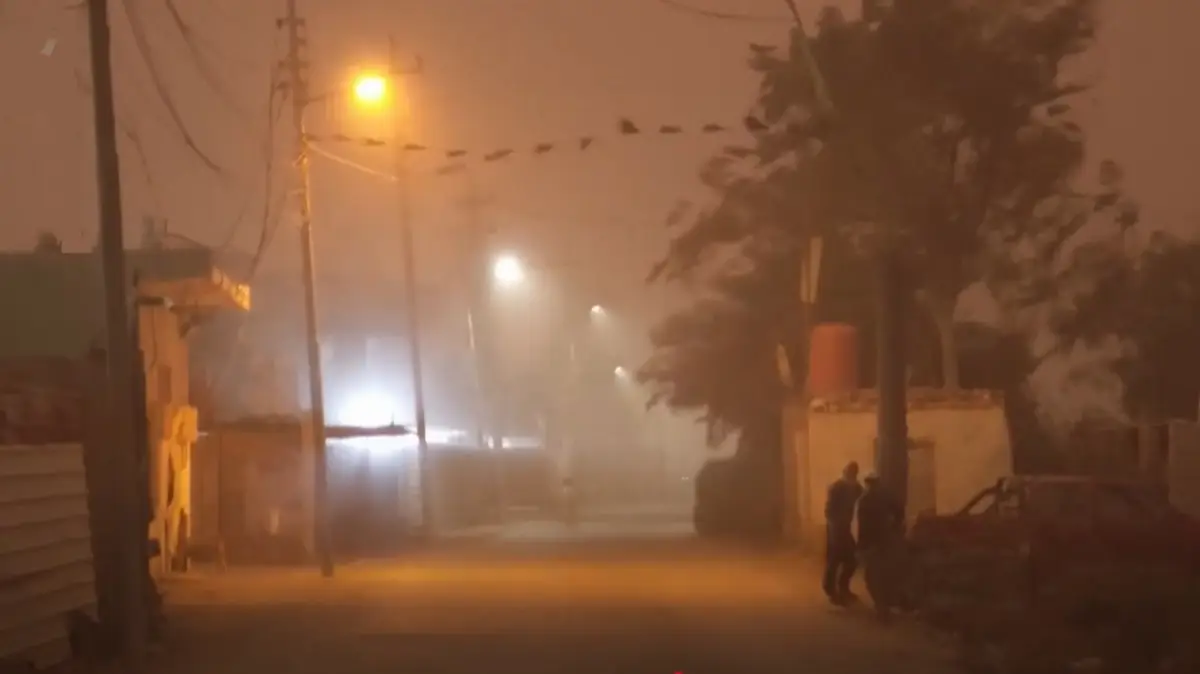
Iraq in the grip of a sandstorm: airports paralyzed, flights suspended
Hundreds hospitalized for respiratory problems; air traffic at Najaf and Basra airports at a standstill

The sandstorm is expected to gradually ease throughout today, on Tuesday, April 15
A violent sandstorm hit central and southern Iraq yesterday, causing severe disruption to the population and paralyzing air traffic in several regions. According to the Iraqi Ministry of Health in an official statement released this morning, more than 1,800 people were treated at local health facilities for acute respiratory problems, triggered by the dense blanket of dust that enveloped cities and rural areas.
The first signs of the storm, as reported by the Iraqi National Meteorological Department already on Sunday, indicated the arrival of strong winds loaded with sand from the western desert regions. However, the intensity and persistence of the atmospheric phenomenon exceeded initial forecasts, reaching its peak on Monday and drastically reducing visibility in large areas of the country.
The most immediate consequences have been seen in the air transport sector. The Iraqi Civil Aviation Authority had to issue an urgent statement late yesterday morning, announcing the temporary suspension of all flights departing from and arriving at the international airports of Najaf and Basra, located in the center and south of the country, respectively. "Due to the drastic reduction in visibility, which has fallen below the safety limits for flight operations, we have taken the difficult decision to temporarily suspend airport operations to ensure the safety of passengers and crews", a spokesperson for the Authority said at a press conference in Baghdad. The suspension of air connections has caused significant inconvenience to hundreds of travellers, with delays and cancellations affecting several national and international airlines.
The most critical situation has been in the southern province of Muthana, where the director of the local health authority, Mazen el-Egeili, told local media that hospitals had registered “more than 700 cases of suffocation and severe breathing difficulties” yesterday alone. Health facilities in the province have been strained by the influx of patients, many of them elderly or suffering from pre-existing respiratory conditions. In Najaf province, a major religious and airport center, hospitals have also received more than 250 people with similar symptoms, as confirmed by local medical sources. Eyewitness accounts collected by the Iraqi press describe scenes of panic and distress, with residents forced to cover their noses and mouths with makeshift masks to try to relieve irritation caused by sand particles suspended in the air. The toll of patients with respiratory problems also extends to other southern provinces: in the province of Diwaniya, about 322 cases have been recorded, 174 in the province of Dhi Qar and as many as 361 in the region of Basra, as communicated by the respective provincial health directorates. Local health authorities have urged the population, especially the most vulnerable subjects such as children, the elderly and people with chronic respiratory diseases, to stay at home and adopt personal protection measures, such as the use of masks and the hermetic closure of doors and windows.
Iraqi security forces were deployed to several areas affected by the storm to assist the population and maintain public order. Police patrols were seen in Najaf, with officers wearing protective masks, while medical teams were busy transporting patients to hospitals.
The Iraqi National Meteorological Department said the sandstorm is expected to gradually ease throughout today, Tuesday, April 15, with visibility expected to improve. However, health authorities remain on high alert, closely monitoring the situation and preparing additional assistance if needed. The hope is that this intense wave of bad weather will end quickly.
AVIONEWS - World Aeronautical Press Agency